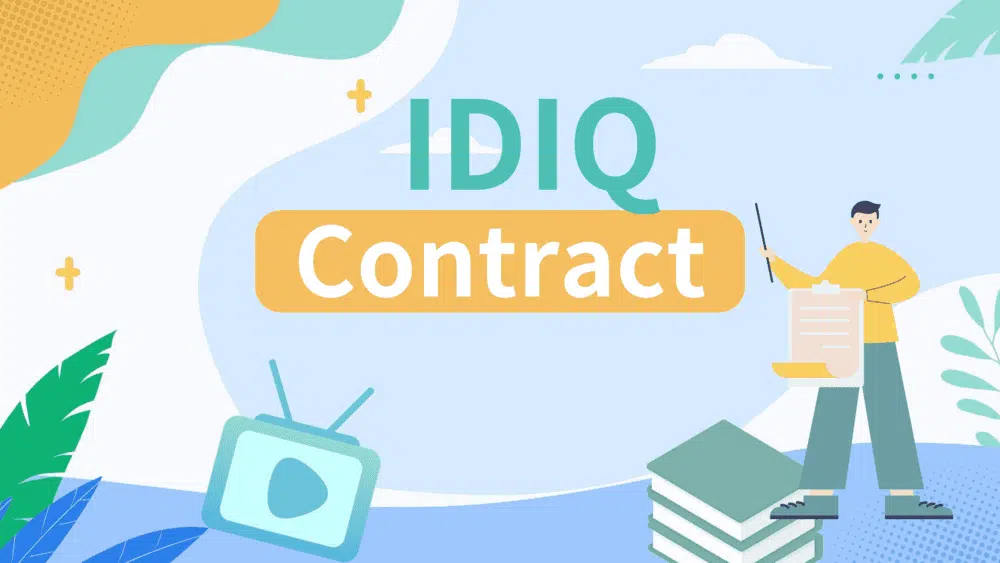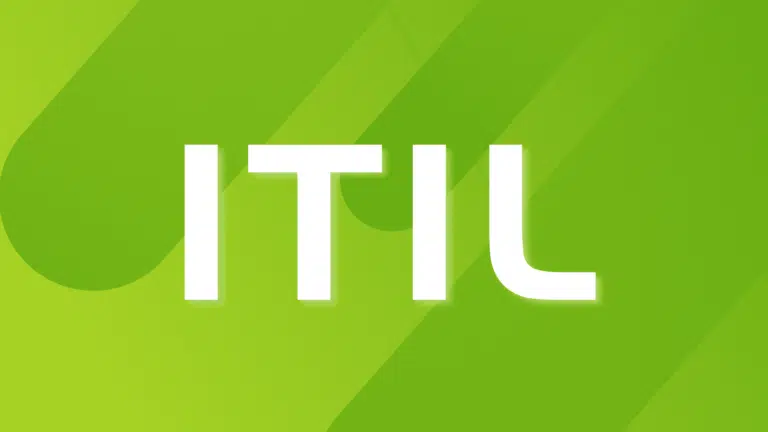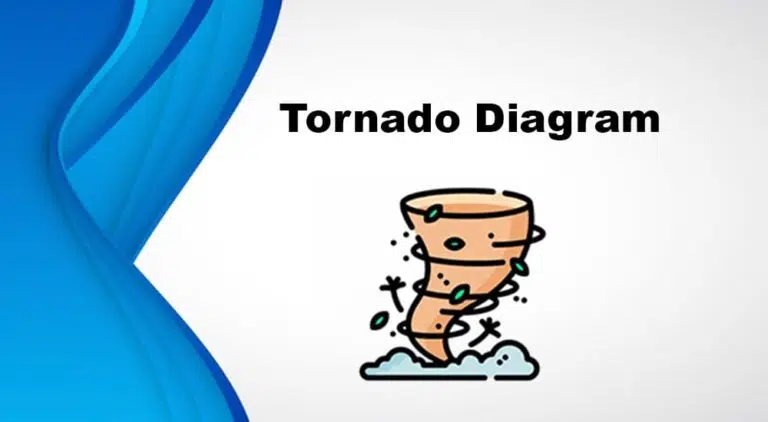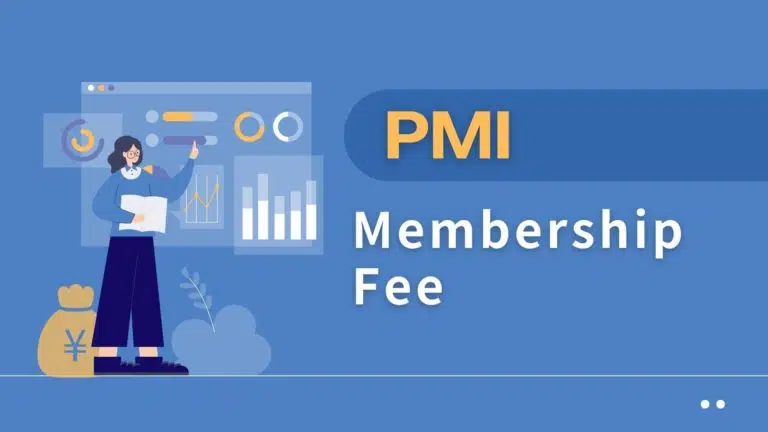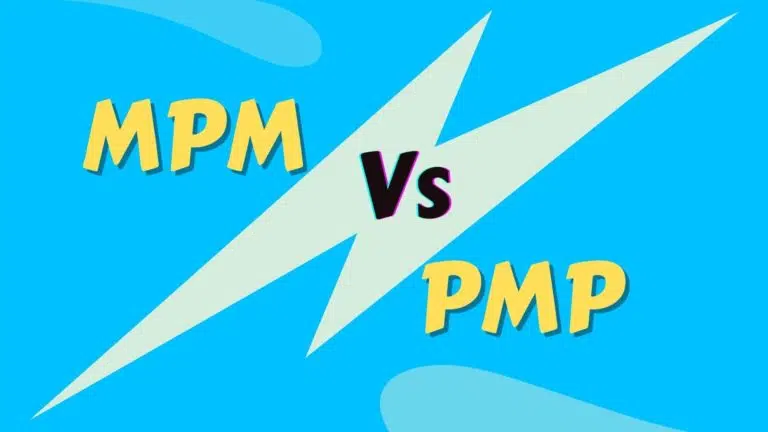An IDIQ contract or Indefinite Delivery/Indefinite Quantity contract is a versatile agreement that enables government agencies to procure goods and services as required without committing to a predetermined quantity in advance. This mutually beneficial contract type provides flexibility for both parties involved.
The total worth of an IDIQ contract is determined by the quantity and value of the items ordered throughout the duration of the agreement.
To gain a deeper understanding of the advantages and management prerequisites of IDIQ contracts, let us delve further into their features.
What is an IDIQ Contract?
Definition: IDIQ, which stands for Indefinite Delivery/Indefinite Quantity, is a procurement contract the government utilizes to purchase an indefinite amount of goods or services from a contractor over a specified period. The IDIQ contract offers flexibility regarding the scope of work and pricing structure.
With an IDIQ contract, the government establishes a framework agreement with one or more contractors for a specific duration. This contract enables the issuance of individual task orders against the framework agreement, specifying the specific goods or services required, the pricing structure, and the delivery timeline.
IDIQ contracts prove beneficial when the government requires specific goods or services regularly. They enable the government to purchase goods or services quickly, avoiding a lengthy procurement process.
What is the Purpose of an IDIQ?
The IDIQ contract provides government agencies with an adaptable and efficient method for procuring goods and services that are challenging to define or quantify in advance.
By utilizing IDIQ contracts, the government can streamline its procurement process, minimize administrative costs, and enhance efficiency. The government can readily adjust the quantity and scope of the work to meet changing requirements.
For contractors, IDIQ contracts offer the opportunity to compete for work over a set timeframe. Contractors can efficiently plan and allocate resources while building long-term relationships with government agencies.
An IDIQ contract is mutually beneficial for both the government and contractors, ensuring high-quality goods and services are procured at a reasonable cost.
IDIQ Contract Pricing
An IDIQ contract can be priced differently depending on the needs. Some pricing structures are as follows:
- Fixed Price: This pricing structure involves the contractor receiving a fixed price for the goods or services they deliver. It is ideal when the scope of work is clearly defined, and the quantity of goods or services can be estimated accurately.
- Time and Materials: This pricing structure is based on labor rates and the cost of delivered materials. It is suitable when the scope of work is unclear and the quantity of goods or services is difficult to estimate.
- Cost-Plus-Fixed-Fee: In this pricing structure, the contractor receives the cost of the goods or services delivered plus a fixed fee. It is ideal when the scope of work is uncertain, or the contractor assumes significant risks.
Types of IDIQ Contracts
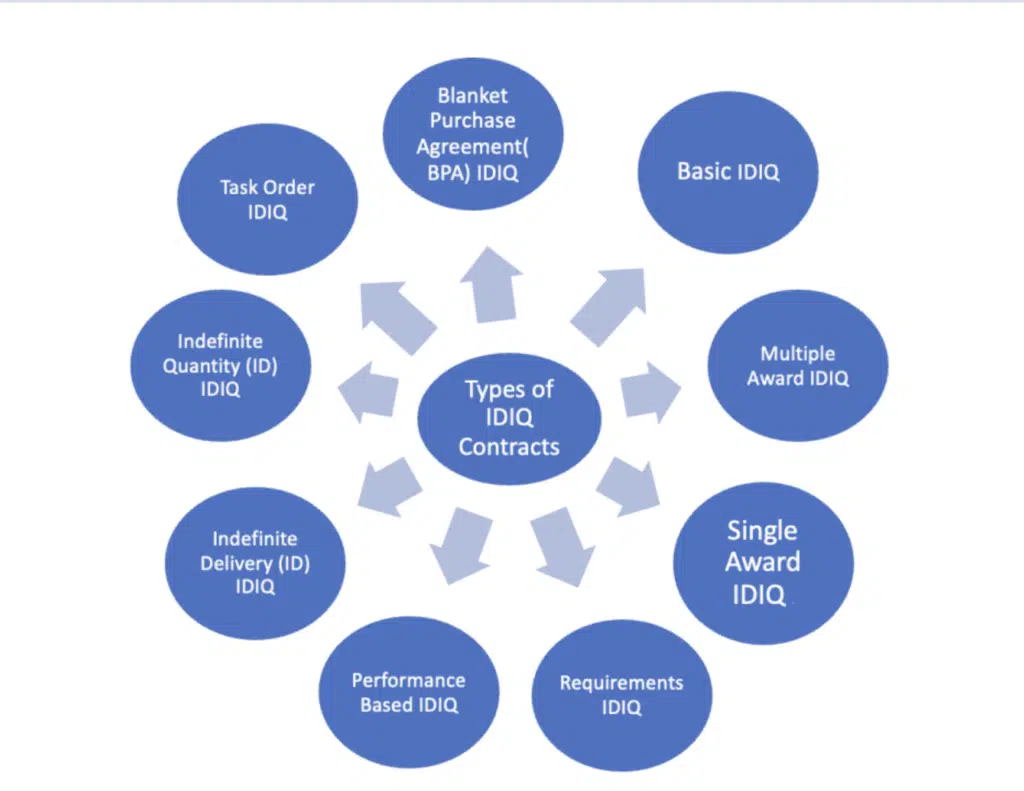
Here are some of the most common types of IDIQ contracts:
- Basic IDIQ: The government agrees to purchase an indefinite amount of goods or services over a specified period, with pricing structured as firm-fixed-price, time and materials, or cost reimbursement.
- Multiple Award IDIQ: The government awards contracts to numerous contractors, each of whom can compete for task orders issued under the contract. This contract type provides access to a diverse pool of contractors.
- Single Award IDIQ: The government awards a contract to a single contractor who competes for individual task orders issued under the contract. This contract type is useful for streamlining the procurement process when the government has a long-term relationship with a contractor.
- Requirements IDIQ: The government agrees to purchase a minimum quantity of goods or services over a specified period, with the option to purchase additional quantities as needed. This contract type is useful when there is a recurring need for a particular good or service.
- Performance-Based IDIQ: The contractor is paid based on achieving specific performance metrics or outcomes rather than on completing specific tasks. This contract type incentivizes the contractor to focus on achieving specific results.
- Indefinite Delivery (ID/DQ) IDIQ: The government agrees to purchase a definite quantity of goods or services with an indefinite delivery schedule. This contract ensures a guaranteed supply of a particular good or service.
- Indefinite Quantity (IQ) IDIQ: The government agrees to purchase an indefinite amount of goods or services with a definite delivery schedule. This contract type is useful for recurring needs, with goods or services delivered regularly.
- Task Order IDIQ: Under a task order IDIQ contract, the government issues individual task orders to the contractor, specifying the scope of work, timeline, and pricing structure. This contract type is useful when individual task orders can address specific, discrete needs.
- Blanket Purchase Agreement (BPA) IDIQ: The government establishes a pre-approved list of goods or services that can be purchased from a particular contractor at predetermined prices. This contract type simplifies the procurement process for ongoing, recurring needs.
Challenges of IDIQ Contracts
Some challenges of IDIQ contracts include:
- Uncertainty of Demand: IDIQ contracts provide flexibility to the government in terms of the quantity and scope of work. However, this uncertainty can make it challenging for contractors to plan and allocate resources effectively.
- Competition: When multiple contractors are awarded an IDIQ contract, competition can be high, making it difficult for contractors to win an order.
- Compliance: IDIQ contracts require contractors to comply with various regulations related to cost, quality, and more. This increases the contractor’s administrative costs.
- Price Uncertainty: While pricing for IDIQ contracts is negotiated at the outset, changes in market conditions or the scope of work can make it difficult to estimate costs accurately.
- Task Order/Delivery Order Management: Managing individual tasks or delivery orders under an IDIQ contract requires careful attention to detail and strong project management skills.
IDIQ contracts can be complex and challenging for the government and the contractor.
However, with careful planning and execution, IDIQ contracts can provide a flexible and efficient way for the government to acquire goods and services while enabling contractors to build long-term relationships with government agencies.
Benefits of an IDIQ Contract
A few benefits of an IDIQ contract are:
- Flexibility: IDIQ contracts offer flexibility to the government by allowing adjustments to the quantity and scope of work to be performed, enabling the government to adapt to changing requirements.
- Streamlined Procurement: IDIQ contracts streamline the procurement process by reducing multiple procurements for similar goods or services.
- Cost Savings: IDIQ contracts result in cost savings by allowing the government to leverage its buying power and negotiate better pricing.
- Reduced Administrative Burden: IDIQ contracts reduce the administrative burden on the government and the contractor by eliminating the need for multiple procurement actions.
- Increased Competition: When multiple contractors are awarded an IDIQ contract, it increases competition among contractors, providing the government with various options for acquiring goods and services.
- Reduced Lead Times: IDIQ contracts reduce lead times for procuring goods or services by eliminating the lengthy procurement process for each requirement.
Overall, IDIQ contracts provide a flexible and efficient way for the government to acquire goods and services while providing contractors with a stable and predictable source of revenue.
Best Practices for Winning and Executing IDIQ Contracts
The following best practices can help wind and execute IDIQ contracts:
- Understand the Scope of Work: Contractors should carefully review and understand the scope of work before bidding on an IDIQ contract. This helps tailor their proposals to meet the government’s needs and requirements.
- Build Strong Relationships: Building strong relationships with government personnel can help contractors understand the government’s needs and improve their chances of winning the contract.
- Demonstrate Past Performance: Demonstrating past performance can help contractors differentiate themselves from competitors and show their ability to execute the work successfully.
- Competitive Pricing: Competitive pricing is critical to winning an IDIQ contract. Contractors should carefully analyze their costs and pricing strategies to ensure they can offer competitive rates while making a profit.
- Leverage Technology: Contractors can leverage technology to manage the administrative burdens associated with IDIQ contracts, such as tracking task or delivery orders and complying with government regulations.
- Maintain Strong Contract Management: Effective contract management is critical to successfully executing an IDIQ contract. Contractors should establish communication channels, track performance metrics, and manage resources effectively.
- Be Agile and Responsive: IDIQ contracts require contractors to be agile and responsive to changing government requirements. Contractors should be prepared to adjust their plans and processes as needed to meet changing demands.
IDIQ Contracting and Small Businesses
IDIQ (Indefinite Delivery/Indefinite Quantity) contracting can be an attractive opportunity for small businesses looking to work with the federal government.
Here are some ways that small businesses can take advantage of IDIQ contracts:
- Set-Aside Contracts: The federal government offers set-aside contracts specifically designated for small businesses that meet certain size requirements. These contracts can effectively allow small businesses to compete for IDIQ contracts.
- Joint Ventures: Small businesses can collaborate with other small or larger companies to form a joint venture to bid on IDIQ contracts. This helps small businesses leverage their strengths and expertise while providing the government with more resources and capabilities.
- Mentor-Protégé Programs: The federal government offers mentor-protégé programs that pair small businesses with larger companies to help them build their capabilities and compete for IDIQ contracts.
- Subcontracting Opportunities: Small businesses can also seek subcontracting opportunities on IDIQ contracts awarded to larger companies. This can help small businesses build their capabilities and experience while providing a valuable service to the prime contractor.
- Focus on Niche Capabilities: Small businesses can often compete more effectively on IDIQ contracts by focusing on niche capabilities that larger companies may not have. By emphasizing their unique capabilities, small businesses can differentiate themselves and offer a compelling value proposition to the government.
Conclusion
IDIQ contracts offer a flexible and efficient means for the federal government to procure goods and services while also providing contractors with a dependable and predictable source of revenue. This arrangement benefits both parties by streamlining the procurement process, reducing administrative burdens, increasing competition, and offering cost savings to the government. It’s a mutually beneficial solution that creates a win-win scenario.

I am Mohammad Fahad Usmani, B.E. PMP, PMI-RMP. I have been blogging on project management topics since 2011. To date, thousands of professionals have passed the PMP exam using my resources.

